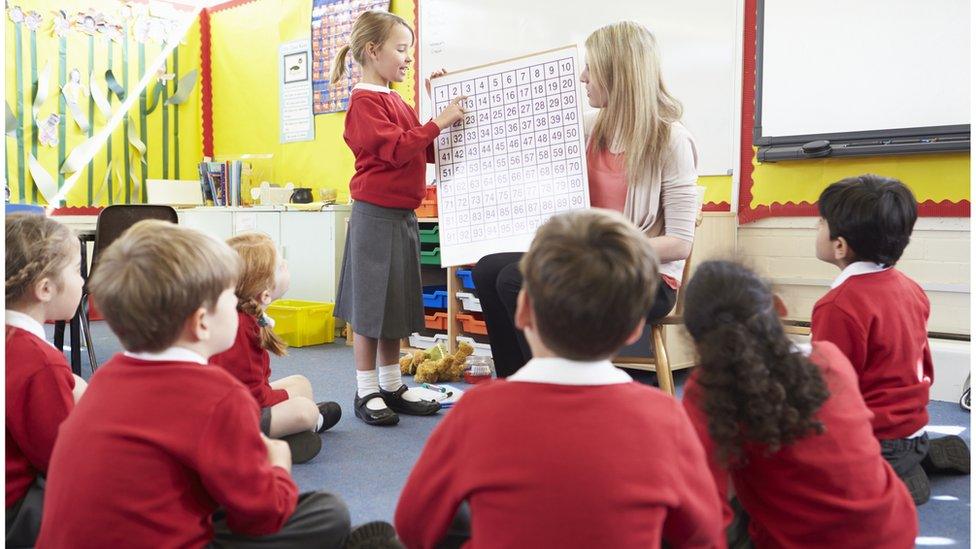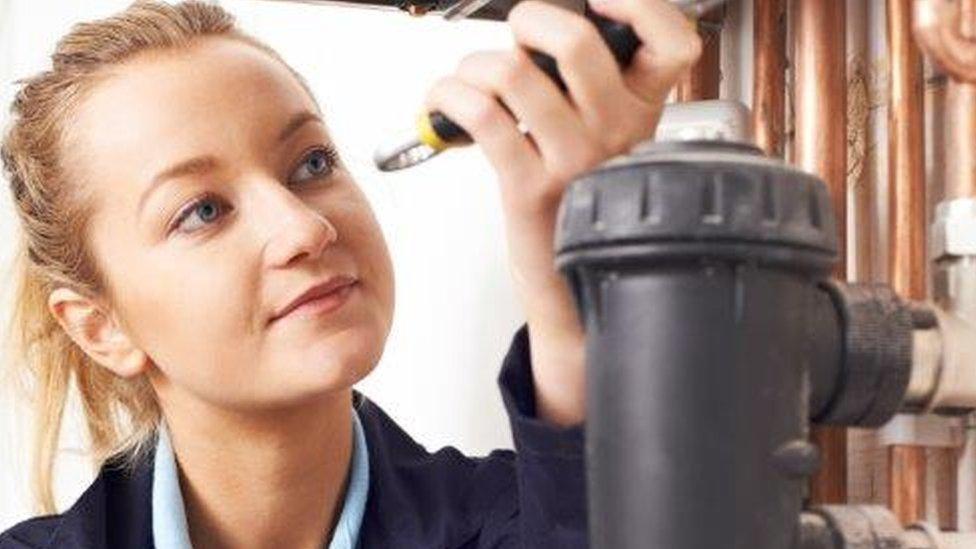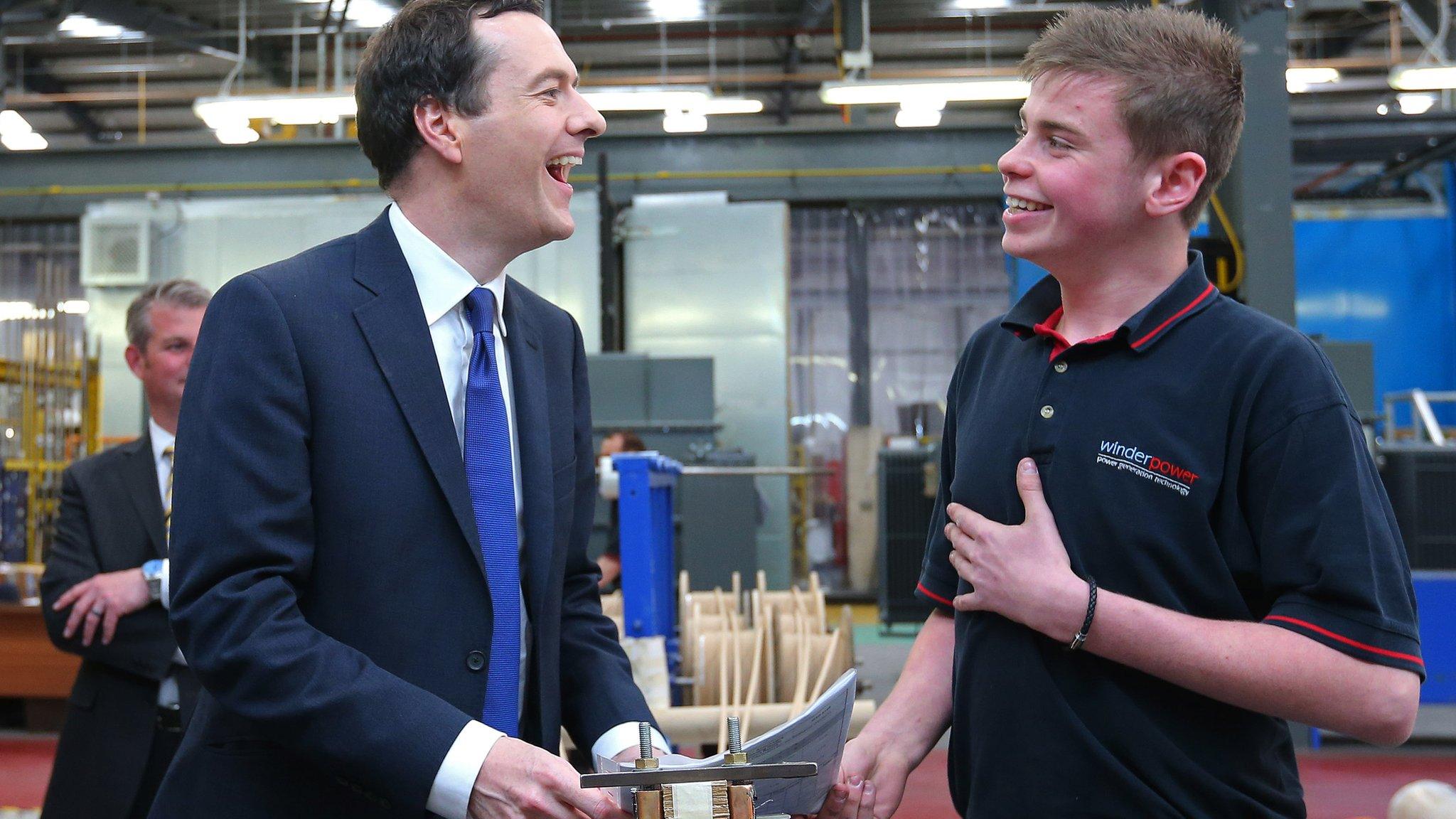Apprentice levy 'will harm small council schools'
- Published

Small council schools will be unfairly hit by the apprenticeship levy, says the LGA
Plans to boost apprenticeship funding in England will hit school budgets, with small council schools unfairly affected, say town hall bosses.
From May, all employers with wage bills over £3m a year must pay, external 0.5% of that into the new apprenticeship levy.
But council schools below that threshold must still pay as they come under the overall local authority wage bill, while small academies are exempt.
The LGA wants the rules changed to put all schools on an equal footing.
Ministers say local authorities, rather than the schools themselves, will be responsible for paying the levy.
But the LGA says advice , externalagreed with the government is that schools should adjust their spending plans for next year to account for the extra cost of the levy.
'Discriminatory'
The LGA says the levy will unfairly hit the finances of about 9,000 small community schools, usually primaries, with a total of 2.8 million pupils.
This is because where a school is maintained by the council, its staff are employed by the local authority, and those staff contribute to the overall wage bill of the council rather than being counted separately.
This means that the apprenticeship levy is applied to them, and will need to be accounted for in school budgets from April 2017, according to the LGA.
But free standing academies, where the academy trust is the employer, will be exempt.
The same is true of some faith and foundation schools, where the governing body is the employer.
"It is discriminatory," said Richard Watts, chairman of the LGA's Children and Young People Board.
"It is no secret that many schools are struggling with their funding, yet once again, council-maintained schools are being dealt a poor hand compared to academies."
"Clearly what really matters is making sure that all children get the education they deserve, regardless of school structures, so applying initiatives like the levy equally across all schools is only right.
"The government therefore needs to urgently revise the apprenticeship levy to make sure that all schools are on an equal footing."
'Breaking point'
The National Association of Head Teachers warned that while 0.5% might not sound like much, "it comes in the context of school budgets being at breaking point already".
"It's another example of government policies hurting schools," said NAHT Head of Policy Valentine Mulholland.
"We would definitely support the LGA's call for small local authority schools to be treated in the same way as stand-alone academies."

Smaller schools will struggle to access funding from the levy, says the National Association of Head Teachers
Once the levy is paid, employers will be able to access funding, external for apprenticeships, but Ms Mulholland said smaller schools would struggle to do this.
"There are hardly any apprenticeships that are suitable for schools," she said.
Ms Mulholland said large secondaries could develop master's level apprenticeships to help staff teach outside their main subject areas or move into leadership.
But smaller schools, which are often primaries, lacked the flexibility and the resources to be able to do this, she said, so the levy would become "just another tax".
Apprenticeship and Skills Minister Robert Halfon said: "We expect these schools to have full access to funding for apprenticeship training and will support all employers, including schools and local authorities, in using levy funds to invest in quality apprenticeships," said Apprenticeship and Skills Minister Robert Halfon.
- Published12 August 2016

- Published25 November 2015
